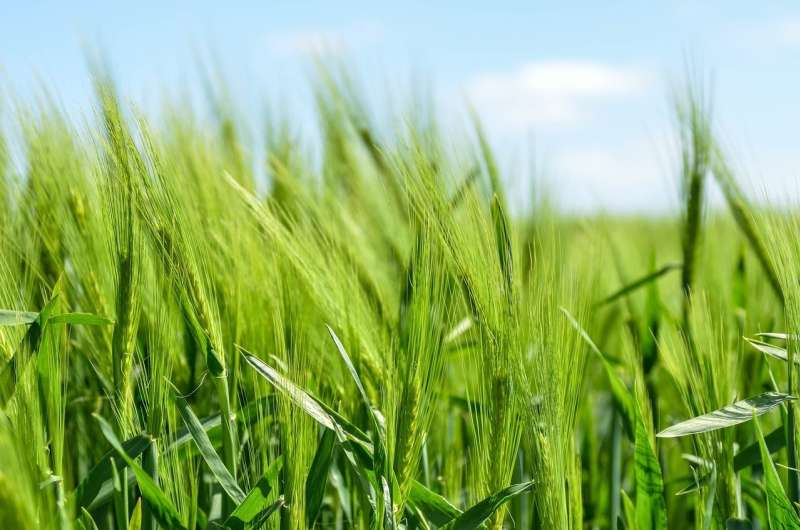Scientists say a One Health approach to plant health is vital to achieving sustainable global food security

A team of scientists argues that a One Health approach to plant health is vital if we are to sustainably feed a growing population expected to reach 10 billion by 2050.
The researchers, who published a commentary in the CABI Agriculture and Bioscience journal, suggest that a One Health perspective can help optimize net benefits from plant protection to realize greater food security and nutrition gains.
One Health is an integrated, unifying approach that aims to sustainably balance and optimize the health of people, animals and ecosystems. It recognizes that the health of humans, domestic and wild animals, plants and the wider environment are closely linked and interdependent.
Dr. Vivian Hoffmann, Senior Research Fellow at the International Food Policy Research Institute (IFPRI), is a lead author of the commentary, which focuses on two primary trade-offs that lie at the interface of plant health with animal, ecosystem and human health.
Dr. Hoffmann and the researchers say that protecting plant health through use of agrochemicals versus minimizing risks to human health and antimicrobial and insecticide resistance is one consideration. Another, the scientists argue, is ensuring food security by prioritizing the health of crops to maximize agricultural production versus protecting environmental systems.
The commentary, which stems from a webinar organized by CGIAR and attended by over 200 participants from around the world, discusses challenges and opportunities for advancement associated with each of these trade-offs—by taking account of how the priorities and constraints of stakeholders may vary by gender.
It stresses that building the capacity of regulatory bodies in low- and middle-income countries to conduct cost-benefit analysis has the potential to improve decision-making in the context of these and other multi-dimensional trade-offs.
The webinar included presentations on the sustainable intensification, benefits to plant health, and risks to human health, of using manure and wastewater to fertilize food crops; Tanzania's experience with "pesticide regulation" management of plant-associated food safety hazards where regulatory capacity is weak, and the role of gender in One Health.
Dr. Hoffmann said, "Increasing crop yields through healthy plants is critical to achieving food security for a growing global population. But agricultural production also poses threats to environmental processes that underpin human health."
The commentary, for instance, highlights that agriculture contributes 34% of greenhouse gas emissions, consumes 84% of fresh water and is the single biggest source of eutrophication causing nitrogen and phosphorus pollution in aquatic systems.
"Interventions to encourage plant health practices that balance ecological concerns and food production will need to consider the constraints, needs, and motivations of farmers, including those mediated by gender," Dr. Hoffmann added.
Webinar participants made the point that farmers and other stakeholders of limited means, and women in particular, may not have the luxury of prioritizing environmental sustainability.
Dr. Hoffmann said, "This points to the need for external financing, perhaps through international green development or climate funds, to promote ecologically sustainable agricultural practices."
The scientists also believe that trade-offs are expected to depend critically on the intensity of exposure to environmental hazards, food security status, and income levels—all of which vary across countries. There is therefore a need, they say, for context-specific analysis, and as such, greater capacity for cost-benefit analysis in low land middle-income countries as a matter of priority.
More information: A one health approach to plant health, CABI Agriculture and Bioscience (2022). DOI: 10.1186/s43170-022-00118-2
Provided by CABI





















